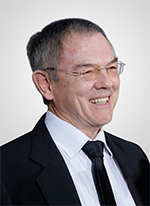

In August 2022, ECSA (the Engineering Council of South Africa) asked me to provide a feasibility study on the sustainability of an automation engineering discipline for South Africa.
Automation already forms part of some engineering disciplines, so what it boils down to is, should automation form part of each engineering discipline in which it is employed, (which would mean that companies in every applicable engineering field should have automation-trained staff?) Or should automation be a separate engineering discipline providing services to the other engineering disciplines?
During my tenure as IT manager at Mossgas (now PetroSA), we had a severe shortage of staff with knowledge of SAP payroll software. This led us to ask ourselves, should we appoint financial staff and train them as SAP programmers, or should we select SAP staff and train them in the application of SAP software?
Because no SAP staff was available (they moved abroad or moved around for more lucrative offers), we chose financial individuals. We trained them in SAP, which was a much faster process to obtain sufficient expertise for our situation.
SAP training has always been excellent – having a specialist team available to train our staff formed the backbone of our decision. In the case of automation, there is no such facility available.
With the advent of the fourth industrial revolution, automation is the keyword. However, South Africa has no qualification with automation as its focus. Considering that there are predictions of 12 million jobs in danger of disappearing in Europe by 2040 due to ageing populations, competition and cost-cutting, South Africa needs to change its focus.
Which country is best for automation? According to the International Federation of Robotics, the world´s top 10 most automated countries are (from first to tenth): Singapore, South Korea, Japan, Germany, Sweden, Denmark, Hong Kong, Chinese Taipei, USA, and Belgium and Luxemburg (which are combined in the statistics).
The results of my survey produced the following results:
Industry involvement:
• 16,3% end users.
• 10,2% suppliers.
• 16,3% system integrators.
• 24,5% consultants.
• 12,2% education and training.
Should automation be a separate engineering discipline?
• Yes: 71,4%.
• No: 20,4%.
Which strategy should tertiary education follow?
Education should investigate providing fit-for-purpose modules (this is similar to the electrical discipline which has electronic and heavy-current modules in its curricula). Modules could include building automation, factory automation or process automation specific, according to 85,4% of respondents.
When you entered this industry, name three of the most important areas of skills that could have been provided through education (theory):
• Programming: 31%.
• Control: 20%.
• Automation: 10%.
• Networks: 16%.
• Instrumentation: 16%.
When you entered this industry, name three of the most important practical skills that could have been provided through education if the right equipment were available (practical):
• Hands-on experience and fault finding: 82%.
Yours in Automation,
Johan Maartens
| Tel: | +27 11 312 2445 |
| Email: | [email protected] |
| www: | www.saimc.co.za |
| Articles: | More information and articles about SAIMC |

© Technews Publishing (Pty) Ltd | All Rights Reserved